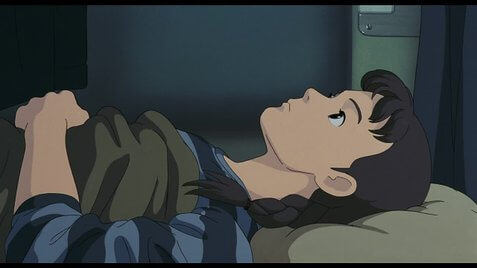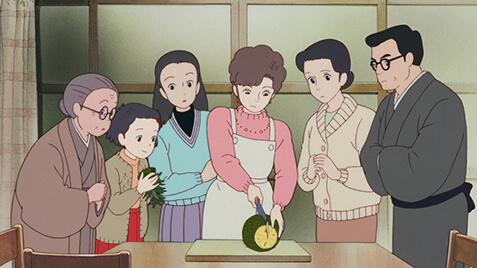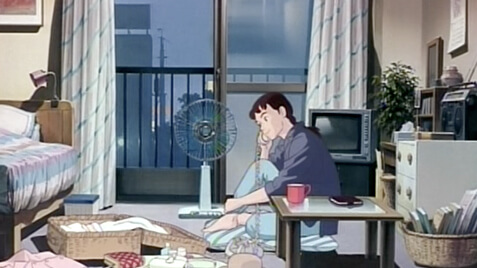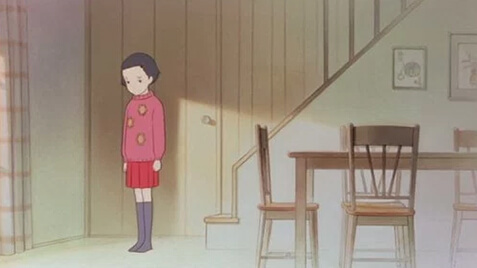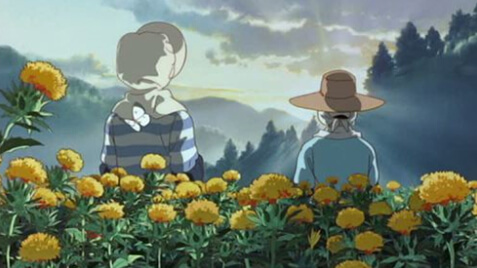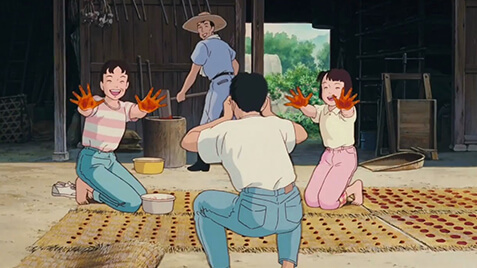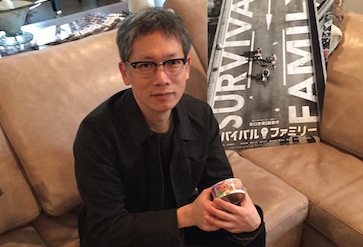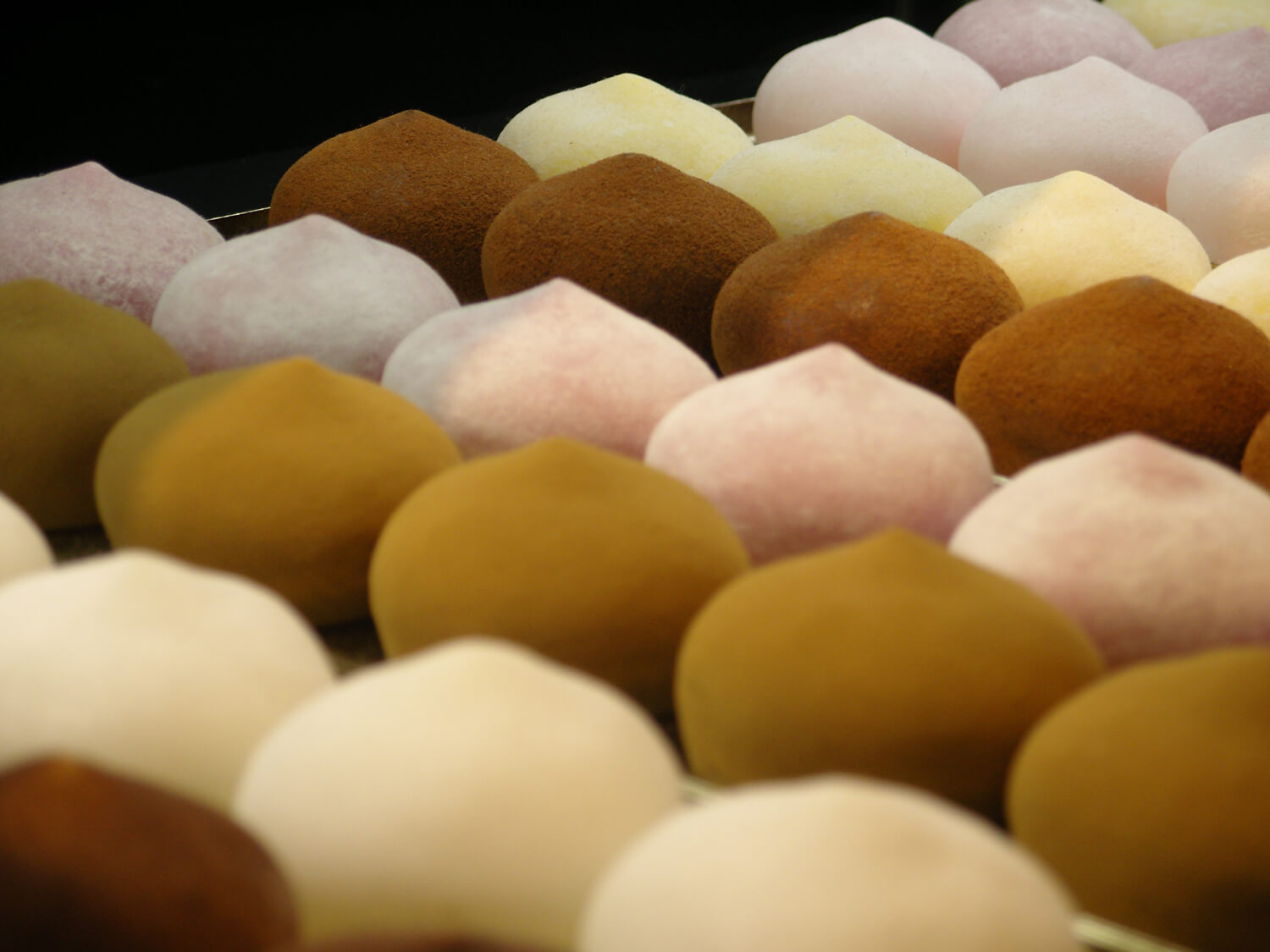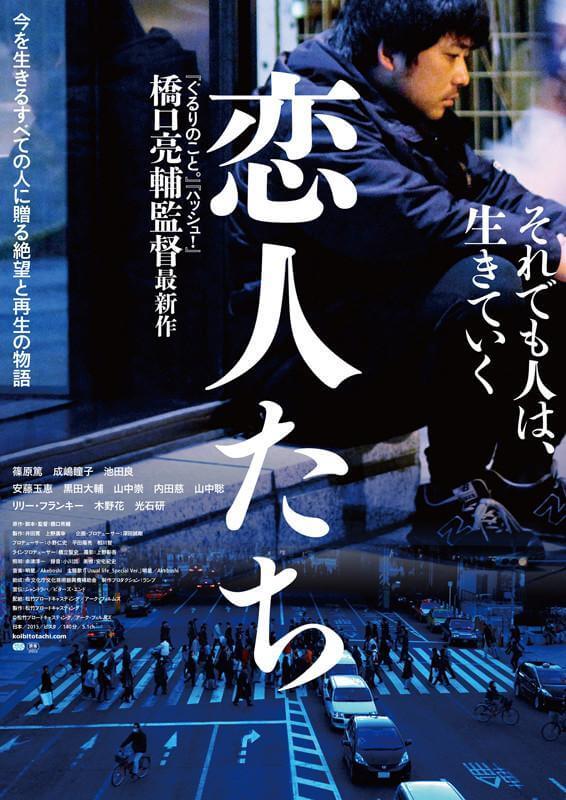Set in both in 1982 and 1966, Only Yesterday tells the story of a business woman, Taeko Okajima, who takes a trip to the countryside of Yamagata in order to take a break from city life.? The night before her trip, she is reminded of the time she went on holiday with her grandmother when she was in the fifth grade.? This sets off a chain of memories of her childhood which continue through her travels. Finally arriving?at?Yamagata, she heads to a remote village where she decides to stay at a farm and pick safflower. She then?meets a younger farmer named Tashio who?teaches her about organic farming and the struggles of country living.? Aided with her memories of childhood, she interacts with her hosts through stories of her past. These memories cause her to question the directions her life has taken and wonders if she has remained true to her past self.
Originally released by Studio Ghilbli in Japan on July 20th, 1991, Only Yesterday has been at times viewed as one of the studio’s best. ?During the time of it’s?release,?anime was largely viewed as being geared for younger audiences and males. With this movie,?Director Isao Takahata?(Graveyard of the Fireflies, Pon Poko, The Tale of the Princess Kaguya)?showed that this could not be farther from the truth. ?With a heavy sense of nostalgia and maturity, this movie brakes all aforementioned stereotypes. ? Deemed as being too unassessable?to Western audiences, the movie never saw a Western release until this year. ? ?
Most of the movie’s maturity comes from the blending of Taeko’s?past experiences and her present life. These sequences are what makes the movie truly?shine. ?Takahata’s direction is nothing short of mastery.? By witnessing Taeko’s past experiences, it is easy for the audience to relate to her present self. Throughout the duration of the movie, the audience is invited to join Taeko on a journey of reminiscing and self-discovery.?? Her past is also presented in a surprisingly relatable way. ?Childhood is painfully brought back to life through experiences of first love, sibling rivalry, puberty, making a bad mark on a test, and gaining parental approval.?This relatability allows the audience?to not only explore Taeko’s inner self, but also themselves.??Through the duration of the movie, Takahata presents a notion that perhaps the past is not meant to restrict but should be seen as?a driving force in a person’s everyday life.
Clocking at almost two hours, Only Yesterday is a journey that is worth every minute. ?Tenderly presented, the movie has the potential to carry the viewer through all the gambit of human emotions.?With many themes on growing up and being in?control of one’s own life, it might take multiple viewings to truly grasp it all.?? Nevertheless, it can definitely be appreciated?on the first view.
Presented as pure drama, Only Yesterday?has?little to no action. ?This may be a deterrent?for younger viewers or individuals that to not enjoy cerebral, dialogue-heavy movies. ?In fact, to these individuals, the movie’s two hour run time might be seen as excessive. ?However, like a cargo ship, the movie is slow to gain speed but by the end, when the credits are rolling, it has the momentum to profoundly touch the heart and soul.
Incentives:
+ Extremely moving and heart-felt
+ Invites the viewer to introspect on life
+ Superb art direction
Deterrents:
– Slow to build speed
-?Dialogue?progressed plot
– Nontraditional storytelling
Overall Rating: A
by Caleb Joseph Fair

